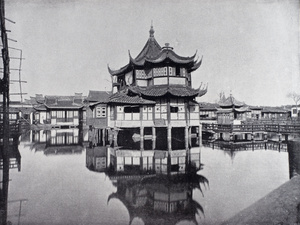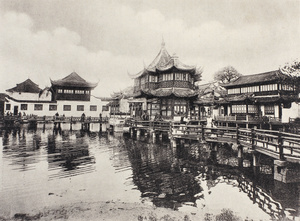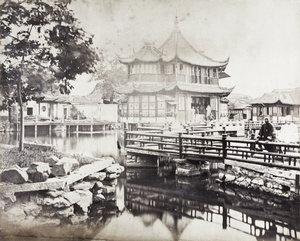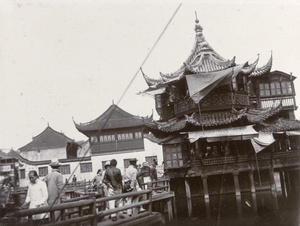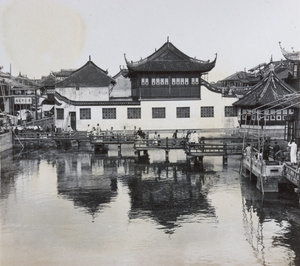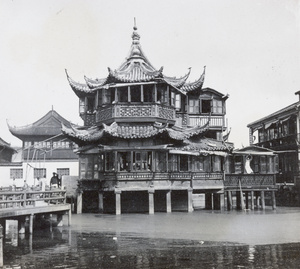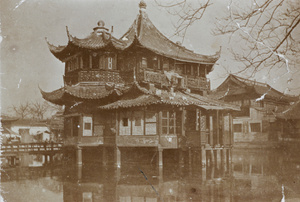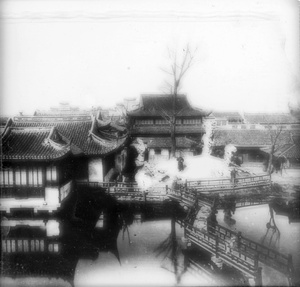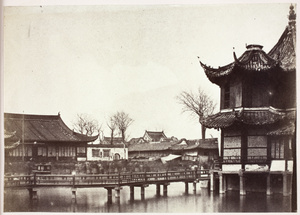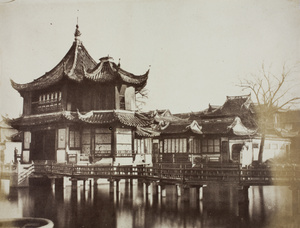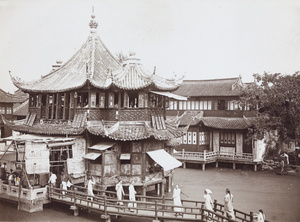Huxinting, 'The Willow Pattern Tea House', Shanghai
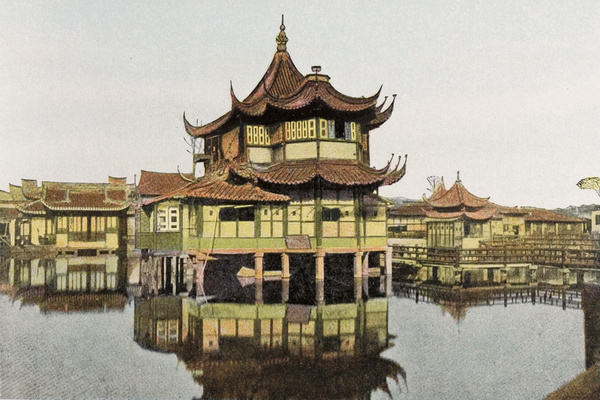
Collection
Identifier
Bk02-03
Notes
University of Bristol - Historical Photographs of China reference number: Bk02-03. Source: page 115 in ‘Collins’ Wide World Geography Reader. Book IV. Asia.’ (William Collins, c.1905). Huxinting or Woo Sing Ding (湖心亭), Old City, Shanghai. This tea house, dubbed 'The Willow Pattern Tea House' by foreigners due to its resemblance to a favourite English crockery design, is approached by a zigzag bridge (The Nine Curve Bridge). Huxinting may have been one of the inspirations for part of the imaginary scene depicted on willow-pattern crockery. This popular crockery design was developed by Thomas Turner in Shropshire, England in 1780. "South China is evidently the home of the story of the willow pattern which used to be so commonly painted on English china, for here the children's clothes, pinafores and ribbons are all embroidered with silk in this pattern." (Source: Kate Pruen 'The Provinces of Western China', 1906). See Bk03-04 (Same view, printed in black and white). See Bk05-01, BL-s088, HR01-107, OH01-048 and OH01-049, Pe01-048, RA-m010, VH02-133, VH02-144 and Wr-s100.
Caption in album or on mount
Public Tea Gardens, Shanghai


